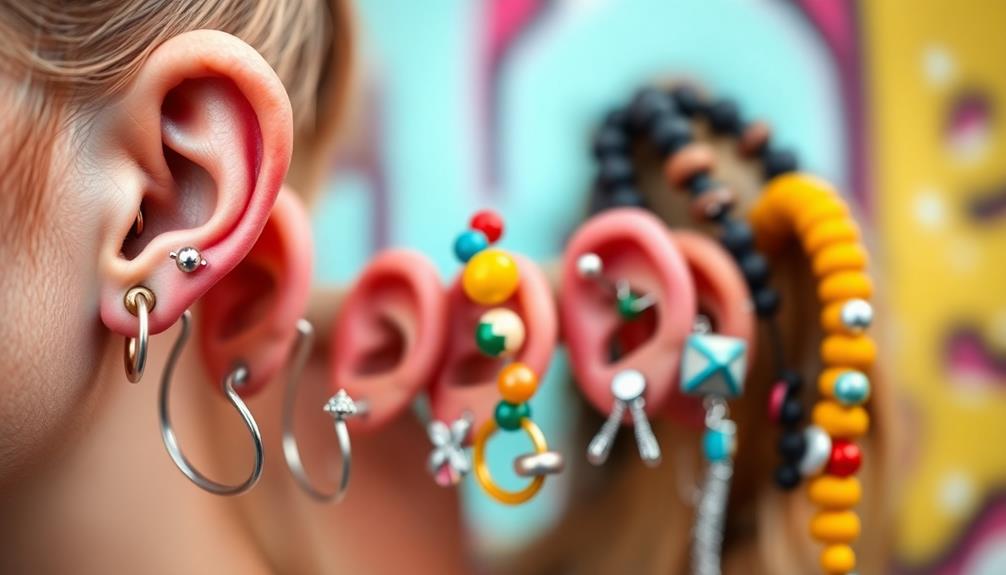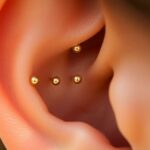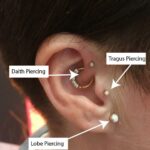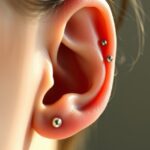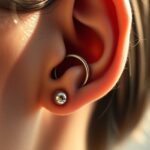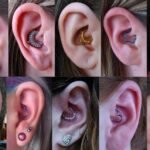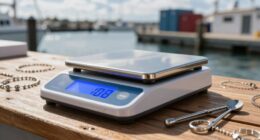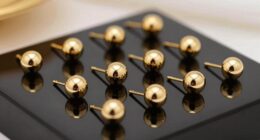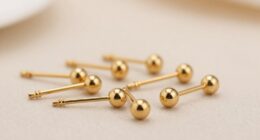Certain piercings, like the daith piercing, are thought to help with anxiety and depression by targeting acupuncture pressure points in your ear. Some people report improvements in their anxiety and mood after getting this piercing, as it may stimulate the vagus nerve and promote relaxation. However, there's limited scientific evidence backing these claims, and medical professionals remain skeptical. Additionally, daith piercings come with risks like infections and require a lengthy healing process. If you're curious about alternative remedies and their effectiveness, there's a lot more to discover.
Key Takeaways
- Daith piercings may stimulate acupuncture pressure points, potentially aiding in anxiety relief, though evidence is largely anecdotal and not scientifically validated.
- Limited clinical trials exist on the effectiveness of body piercings for mental health, leading to skepticism among medical professionals.
- The healing process for daith piercings is lengthy, ranging from 6 to 12 months, with a higher risk of infection compared to standard lobe piercings.
- Alternative anxiety remedies, such as Cognitive Behavioral Therapy and exercise, are established methods with proven effectiveness, unlike piercings.
- Individuals should consult medical professionals before opting for piercings, especially if they have pre-existing health conditions or concerns.
Understanding Daith Piercing
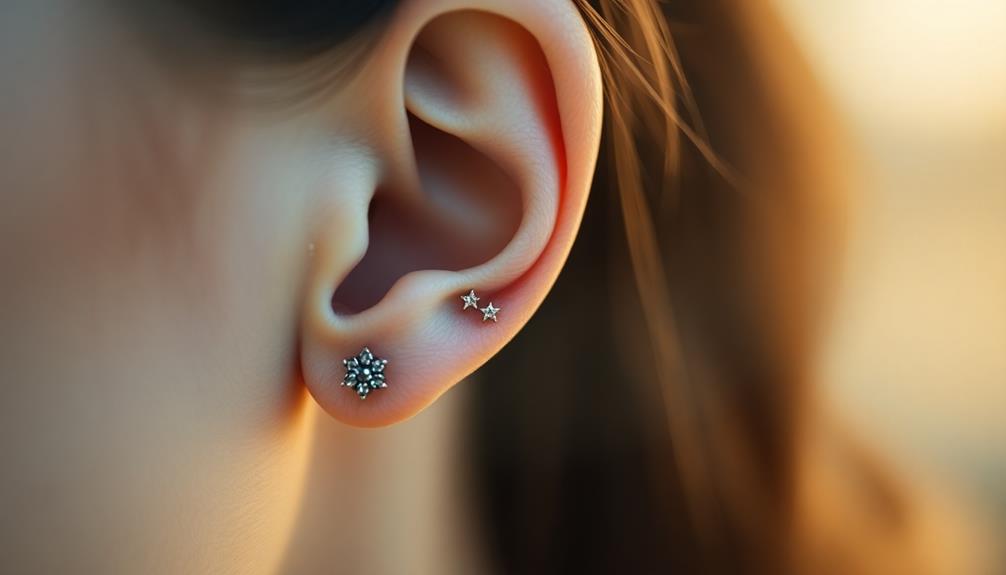
Daith piercing, a unique form of body modification, has gained attention for its potential link to mental health, particularly anxiety relief. Located in the innermost cartilage fold of the ear, this piercing was co-created in 1992 and is believed to stimulate acupuncture pressure points associated with anxiety.
While some individuals claim subjective improvements in their anxiety symptoms and even migraines, medical professionals remain skeptical, citing the lack of rigorous scientific evidence to support these claims.
The procedure itself requires a skilled piercer, as it involves using a specifically curved needle to penetrate the thick cartilage. Healing time for a daith piercing typically ranges from 6 to 12 months, and you might experience initial pain and a higher risk of infection compared to lobe piercings.
Despite proponents' beliefs in its therapeutic benefits, the scientific community emphasizes the need for more thorough clinical studies before concluding that daith piercings can genuinely alleviate anxiety. Given this situation, it's crucial to approach the idea of using daith piercings for mental health with caution, balancing anecdotal experiences against the prevailing skepticism of medical professionals.
Mechanism of Action
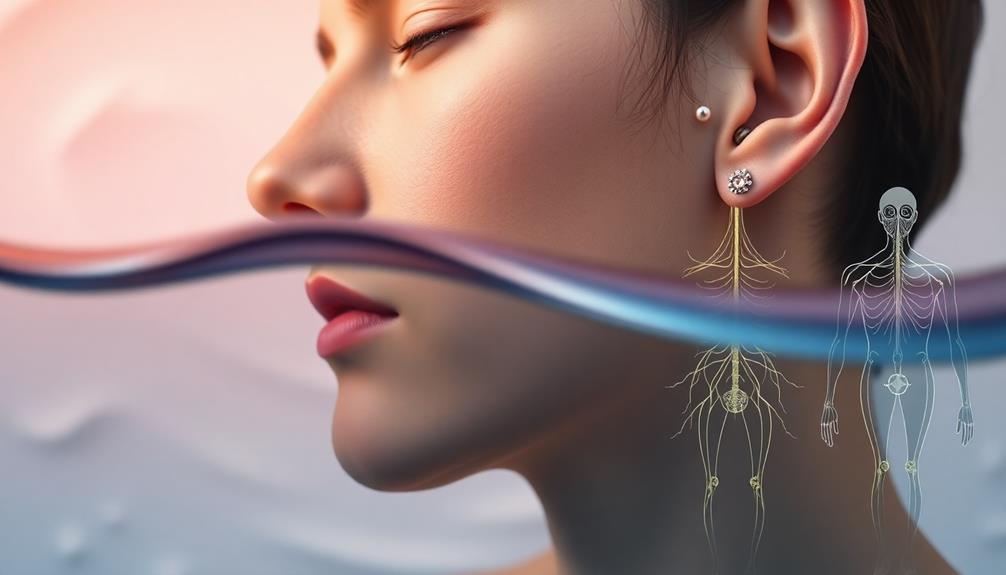
The mechanism behind the potential benefits of daith piercing revolves around its ability to stimulate specific pressure points in the ear, which may have an impact on anxiety relief.
Located near acupuncture point zero, the daith piercing exerts constant pressure that could influence the vagus nerve. This stimulation may promote relaxation by regulating the autonomic nervous system, which plays a vital role in mental health.
As the vagus nerve is stimulated, it might lead to the release of endorphins—your body's natural mood enhancers. This release can create a sense of well-being, helping to achieve homeostasis and balance within your system.
While there's anecdotal evidence suggesting that some people experience reduced anxiety symptoms after getting a daith piercing, it's significant to acknowledge that this remains largely unverified by scientific research.
Despite the speculative nature of these mechanisms, the principles align with those of acupuncture, which aims to enhance energy flow and alleviate discomfort.
Ultimately, the daith piercing may serve as a complementary approach to managing anxiety, but individual experiences will vary based on personal circumstances and perceptions of mental health.
Evidence and Research

While many people seek relief from anxiety through various methods, the evidence supporting daith piercings as an effective treatment remains largely anecdotal. Most claims about their benefits come from social media testimonials rather than rigorous scientific trials.
Here are some key points to take into account:
- Limited Clinical Trials: Few studies specifically examine the efficacy of daith piercings for anxiety relief.
- Anecdotal Evidence: Many reports of success stem from individual experiences rather than peer-reviewed research.
- Migraine Symptoms: A 2017 case report highlighted improvements in migraine symptoms following a daith piercing, but there's no direct link to anxiety reduction.
- Acupuncture Connection: While ear acupuncture is known for stress reduction, the specific benefits of a daith piercing remain unvalidated by substantial scientific research.
Skepticism exists within the medical community about the therapeutic effects of piercings on mental health conditions.
Without more robust evidence, it's crucial to approach the idea of using daith piercings for anxiety with caution and to explore other validated treatment options.
Risks and Considerations
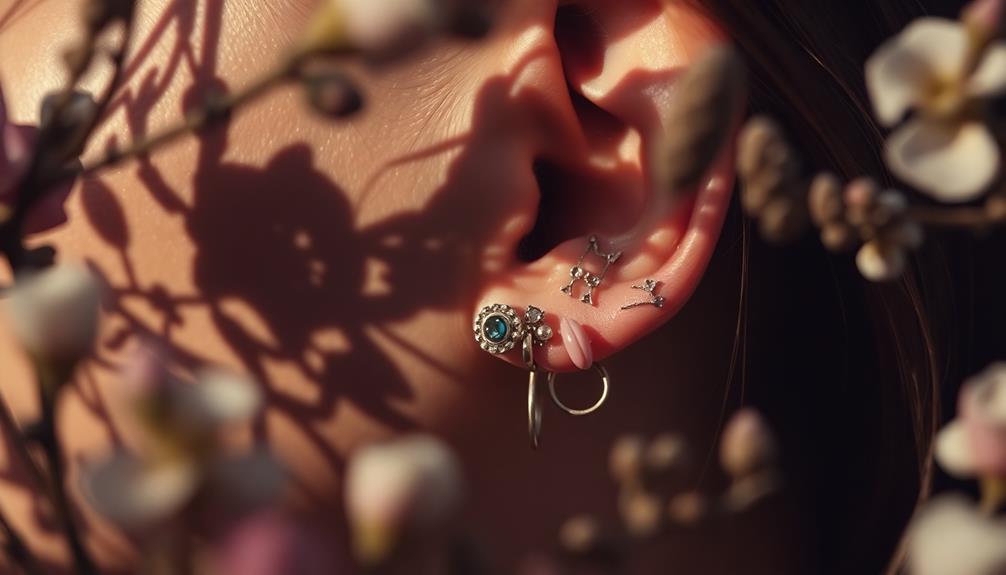
Before deciding on a daith piercing, it's important to weigh the risks and considerations involved. While many seek this piercing for potential anxiety relief, it carries a higher risk of infection compared to lobe piercings. Estimates suggest that complications may arise in up to 35% of ear piercings, particularly due to the nature of cartilage.
The healing time for a daith piercing typically ranges from 6 to 12 months, requiring diligent aftercare to prevent issues like keloids or scarring. Pain during the piercing can also be more intense, given the thicker cartilage, so pain management options should be discussed beforehand.
If you have pre-existing health conditions, consult a medical professional before proceeding, as you may face heightened risks, including severe infections that could lead to complications such as meningitis or sepsis.
Continuous monitoring for signs of infection or excessive swelling is important during the healing process. Proper care is essential, as neglecting aftercare can lead to serious complications, negating any potential benefits related to anxiety relief from the daith piercing.
Alternative Anxiety Remedies
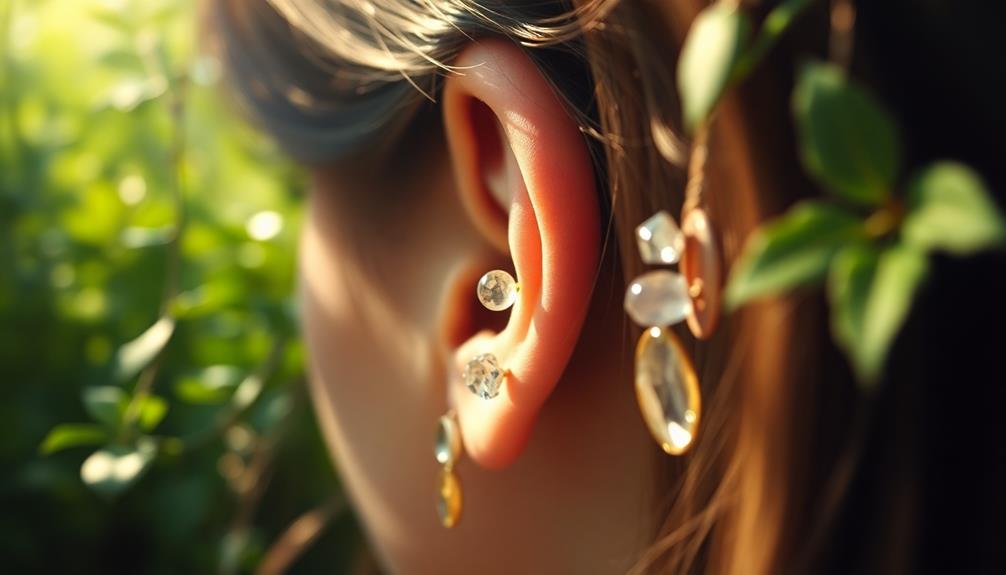
When considering ways to manage anxiety, exploring alternative remedies can provide effective options beyond physical alterations like piercings. These remedies often focus on holistic health and empowering you to take control of your mental health.
For instance, understanding narcissistic behaviors can aid in recognizing emotional triggers that contribute to anxiety. Here are some methods you might find beneficial:
- Cognitive Behavioral Therapy (CBT): CBT helps you identify and change negative thought patterns, effectively relieving anxiety symptoms.
- Exercise: Engaging in regular physical activity, like walking or yoga, for at least 150 minutes a week releases endorphins, which can greatly improve your mood and reduce anxiety.
- Herbal Supplements: Consider herbal options like valerian root and passionflower. These supplements may offer calming effects, but always consult a healthcare professional before starting any new regimen.
- Acupuncture: This ancient practice targets specific points in the body to promote relaxation and improve mental health, helping relieve anxiety symptoms.
Incorporating these alternative remedies alongside or instead of traditional approaches can empower you on your journey to managing anxiety more effectively.
Frequently Asked Questions
What Piercing Helps With Anxiety and Depression?
If you're considering a piercing for anxiety and depression, many people explore the daith piercing. It's thought to stimulate acupuncture points, but remember, anecdotal evidence is limited, and professional advice is essential for effective treatment.
Does a Tragus Piercing Help With Anxiety?
You'd think a tragus piercing could magically ease your anxiety, right? While some tout its benefits, the science just doesn't back it up. Consult a professional instead; real relief comes from established treatments, not jewelry.
How Do You Relieve Anxiety From Piercings?
To relieve anxiety from piercings, choose a skilled piercer, practice deep breathing, and engage in distractions like music. Proper aftercare's essential, too; it helps prevent complications that could heighten your anxiety during healing.
Does Rook or Daith Piercing Help With Anxiety?
You might find that rook or daith piercings provide some relief from anxiety symptoms. Many people report feeling calmer, but remember, these effects are largely anecdotal and not scientifically proven, so results can vary.
Conclusion
In the quest for calm, daith piercings might serve as a gentle lighthouse in your stormy sea of anxiety or depression. While the evidence is still like a flickering candle, some find solace in its embrace. Just remember, every journey is personal, and what soothes one soul might not touch another. So, explore alternative remedies too, and let your path to peace unfold like a blooming flower, brightening your life with each step you take.


